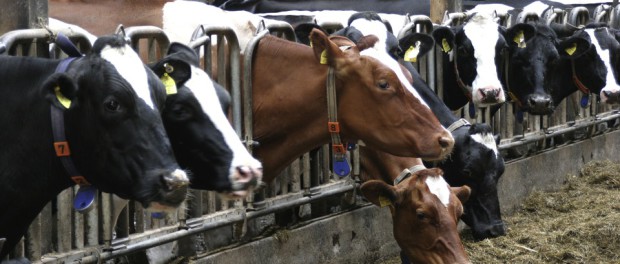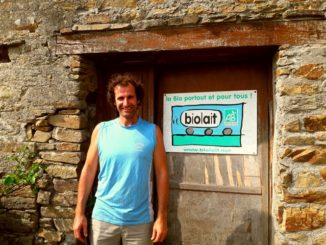
Press Release, European Milk Board, 24.02.2016
EU agricultural policy cannot be used as a tool to pit European producers against each other any longer
For a while now, the European Union has ceased to be the institution of solidarity and peace it was for so many of us for such a long time. Be it the Brexit or the Grexit, the refugee or the financial crisis – there are currently many forces pulling the countries of the EU away from each other, rather than bringing them closer together. Today, the agricultural sector as well is contributing to divisions within the Union. This is an appeal for a real COMMON AGRICULTURAL POLICY!
We need policies that bring people back together. This is required in all sectors, but especially in the agricultural sector. Current agricultural policies have triggered a crisis that has destroyed prices of agricultural products and thus robbed farmers of their income and livelihood. Producers have reacted in a very typical way to such social injustice: In addition to hefty protests against policy-makers, there are also many cases where producers have taken action against their fellow colleagues from other countries. For example, milk tankers from neighbouring countries are stopped and emptied in the middle of the road, so as to prevent foreign milk from exerting even more pressure on the already saturated national market. In a state of panic, local dairies and consumers are being asked to process or buy only national products. Because of this dire situation, farmers are forced to compete for resources with their neighbours, who are also struggling to survive in their own highly saturated national markets.
The Common Agricultural Policy is not being used
All this is even more painful when you consider that the European Union has a Common Agricultural Policy that could resolve this crisis for all countries at EU level. The dairy sector, for example, would require centralised volume reduction during times of crisis, which can be implemented in the form of voluntary production cuts and further measures described in the Market Responsibility Programme. This would provide a solution to market saturation that would be fair for all countries. But these advantages presented by the Common Agricultural Policy are not being used – quite the contrary. National egoism, stemming from uncertainty, is gaining ground.
The European Commission, together with countries like Germany, the Netherlands and Ireland refuse to budge from policies that lead to increased production and are thus shirking their responsibility to uphold social harmony in the EU.
Recommendations from Member States must lead to volume reduction measures
Tomorrow, 25.02.2016 is the last day for Member States to submit their crisis resolution recommendations to the European Commission. It is important for these to, at last, lead to the implementation of volume reduction measures. However, this depends not only on how the recommendations themselves are formulated, but also on the European Commission’s evaluation of the same. If they were to, once again, simply cherry-pick and promote the concepts that are in line with their own strategies – providing loans for increased production, export promotion etc. – it will be another clear example of how the Commission exploits its position. This will also unequivocally demonstrate how blind they are to their responsibility towards social harmony in the EU and how poorly this value is upheld.
Let us not forget: it is possible to address the problem of overproduction in the dairy sector at EU level and thus ensure that farmers and consumers in individual countries are not left hanging. If the European Commission and the Member States – most notably Germany – do not capitalise on this opportunity, the voices against open borders with neighbouring EU Member States will only get louder. This poses a grave danger, as it would not only lead to divisions within the EU, but it could eventually lead to a complete collapse.
The European Milk Board calls for a European Union that acts in favour of the common good and well-being of its citizens and shows solidarity while upholding peace and harmony. EU agricultural policy cannot be used as a tool to pit European producers against each other!




